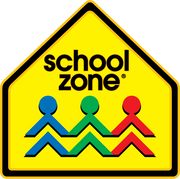From September through early June, most kids in K-6 spend more time at school with teachers than at home with parents. Being on the same page helps ensure that kids are doing and learning what they need to succeed.

Teachers cannot see into their students' homes, and parents generally only get glimpses into, and if they're lucky, some stories about school. Parents and teachers can bridge these gaps and "blind spots" by working closely together.
Imagine Schools at West Melbourne, puts it beautifully in saying that "A parent-teacher partnership is a powerful alliance that brings together the two most influential forces in a child's life - their parents and teachers."
The results of that alliance can affect many areas of a child's life in both the short term and long term. Reading Rockets, in "Building Better Parent-Child Relationships," authored by the Federation of Teachers, reports that "substantial evidence exists" to show parental involvement improves kids' academic performance. However, they note that other advantages it produces are "increased motivation for learning, improved behavior, more regular attendance, and a more positive attitude about homework and school in general." And they offer some effective communication strategies.

Similarly, last year the Healthy Family Project posted "10 Things Teachers Wish Parents Knew During the School Year" by Heather Brickell, guest blogger, teacher, and mom of two. Up front she notes that "…collaboration between parents and teachers is crucial for a child's success." At #1 in her Top 10 list is communication, which she describes as vital. Running second is reinforcement of learning at home. Brickell notes that "Education is not limited to the classroom."
Other tips include having realistic expectations and remembering that "Each child has their unique strengths, weaknesses, and pace of development"; fostering resilience and perseverance; encouraging a love for reading; and advocating for your child, in part by staying involved and participating in "parent-teacher conferences, school events, and meetings."

View report cards as opportunities
Seeing report cards can be an aha-moment in terms of realistic expectations, a point of genuine concern, or both. In April, Amanda Morin, writing for Understood, an organization dedicated to "empowering the 70 million people with learning and thinking differences in the United States," offered excellent "Tips for Talking About Report Cards." It includes some terrific scenarios of quick reactions vs. more thought-out reactions to seeing your child's grades and talking to them about it. For example, if some grades got better but others got worse, Morin says you might want to say, "What happened with the rest of your classes?" Instead, try saying, "Your math and science grades look great! Let's take a look at how we can help you in your other classes."

And what if all grades are low, but your child is working hard? Morin says, "Kindly saying that you know they're working hard can be a relief for kids. It tells them you notice how hard they're working. But you also know they may need different strategies to manage their challenges." She says that showing your commitment to helping them figure it out can be both a comfort and a confidence boost.
And "figuring it out" will usually involve their teacher. The Canada-based Oxford Learning in "Everything You Need to Know About Report Cards," offers that teacher feedback is an essential part of report cards and that their comments offer "a better understanding of your child's performance beyond mere numbers." Teacher comments often address important aspects of development such as behavior and participation, effort and attitude, and specific strengths and weaknesses.
Report cards may suggest the need for a hard but important conversation both with your child and their teacher, including discussion of how you can be reinforcing kids' classroom learning at home or working on any attitude or behavior issues.

Address concerns sooner vs. later
People are people, and no matter how well-intentioned their mutual efforts, disagreements and misunderstandings can happen, including with your child's teacher. A post on LinkedIn this spring, titled "How Can You Avoid Conflicts with Parents and Teachers," reminds that "no parent-teacher relationship is perfect, and that conflicts are inevitable and normal. Be flexible and open-minded, and accept that you and the teacher may have different opinions, styles, and approaches."
The same post emphasizes the importance of establishing clear expectations and being respectful. It says, "If a conflict does arise between you and your child's teacher, don't ignore it or let it fester. Instead, approach it as an opportunity to collaborate and find a solution that benefits your child" and continues with some additional tips. It concludes that section with advice to "Seek common ground and compromise, and agree on an action plan and a follow-up."
Teachers want what's best for kids, and so do parents. Any perceived differences in how to achieve that can often be resolved through ongoing dialogue and careful listening. Viewing one another as allies and partners will give your child the best chance to thrive and move forward.












